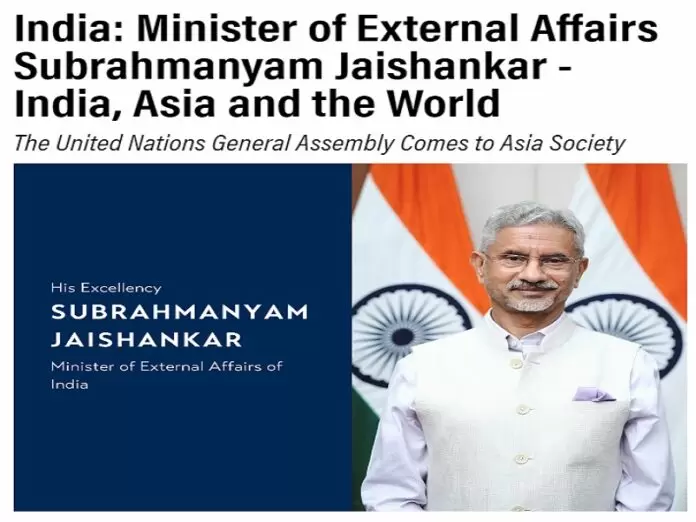Indian Minister of External Affairs (EAM) Dr. Subrahmanyam Jaishankar elaborated on his country’s balancing act vis-à-vis China during his appearance last week at the Asia Society Policy Institute. He started off by giving a speech about “India, Asia and the World” in which he identified the top three trends shaping the world today: rebalancing, multipolarity, and plurilateralism. These refer to the rise of the non-West, the creation of new independent players, and the assembling of limited groups.
All of these are relevant to India’s balancing act vis-à-vis China. As regards rebalancing, India’s aspiration to obtain a permanent UNSC seat just like the People’s Republic already has serves as proof of the rise of the non-West in global affairs. Its self-image as the Voice of the Global South and masterful multi-alignment between competing countries in the New Cold War confirm its role as an independent player, while the Quad embodies the concept of limited groups as Jaishankar himself mentioned.
He also remarked during the Q&A session that followed his speech that his country “can chew gum and walk at the same time” when asked about how it can participate in that aforesaid plurilateral group while still being a member of BRICS and the SCO. China is those two’s co-founder and both groups explicitly work towards accelerating multipolarity, yet Jaishankar strongly hinted that China is secretly aspiring for unipolarity in at least all of Asia. Here are his exact words:
“I think the India-China relationship is key to the future of Asia. In a way, you can say that if the world is to be multi-polar, Asia has to be multi-polar. And, therefore, this relationship will influence not just the future of Asia but, in that way, perhaps the future of the world as well.”
This echoes what he said in early 2023 while visiting the EU, namely his innuendo that China wants to impose unipolarity in Asia, which would prevent the emergence of multipolarity by restoring a form of bipolarity to the world. It’s unimportant whether observers agree with his implied assessment since the salience lies in the fact that India formulates policy with this suspicion in mind. One can now accordingly better understand the way in which the three previously mentioned ones advance this objective.
The unresolved Sino-Indo border dispute continues to toxify their ties, as does India’s objection to the China-Pakistan Economic Corridor (CPEC) flagship of Beijing’s Belt & Road Initiative (BRI) traversing through Pakistani-controlled territory that Delhi claims as its own, not to mention Sino-Pak military ties. India’s responses to each of these three will always fail to have the political weight that China’s do so long as it lacks a permanent seat at the UNSC, ergo why the People’s Republic continues denying it such.
That’ll become more difficult for China to do without damaging its own reputation if India leverages the rest of the world’s recognition of its status as an independent player in the global systemic transition to get them to support a UNGA Resolution on giving it a permanent UNSC seat as was proposed here. Even if China remains recalcitrant, India already exerts practical influence over multipolarity processes by dint of its sheer demographic and economic size, so the abovementioned goal might ultimately be moot.
And finally, India’s membership in more plurilateral configurations can facilitate the attainment of enough limited goals that it ends up having more influence than some permanent UNSC members like the UK and France, especially if Russia is included in such frameworks. Altogether, the takeaway from Jaishankar’s talk last week is that everything that India does is about balancing China, which it fears wants to dominate Asia in order to then reach a deal with the US for dividing the world between them.







